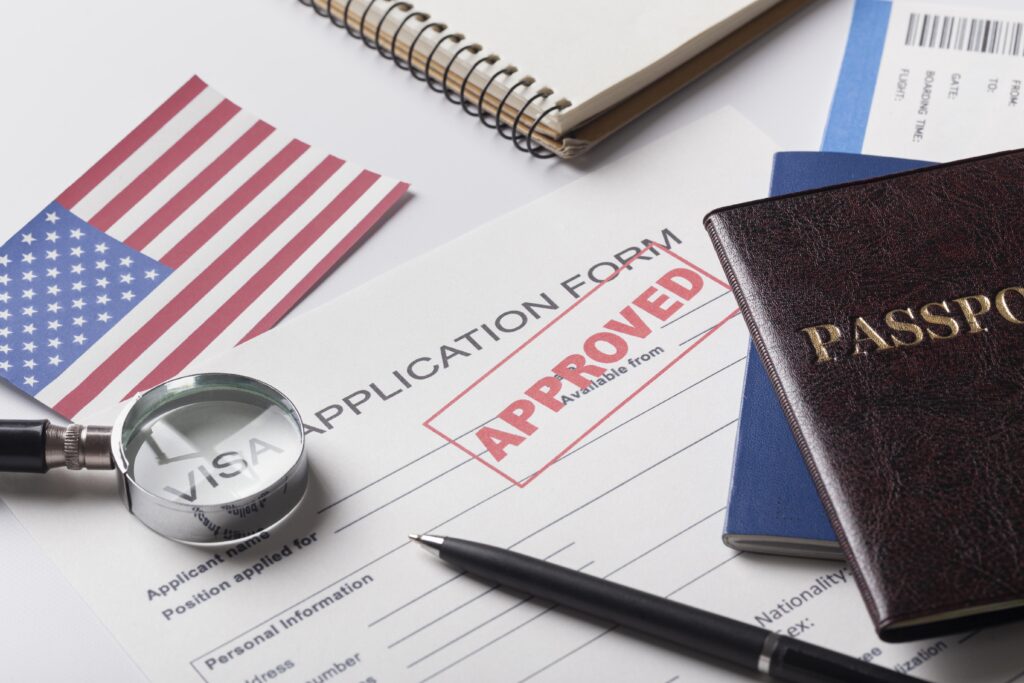United States Visa
Uddish Visa Hub training programs can bring you a super exciting experience of learning through online! You never face any negative experience while enjoying your classes virtually by sitting in your comfort zone. Our flexible learning initiatives will help you to learn better and quicker than the traditional ways of learning skills.

US Visa
It seems like you’re asking about the Uddish Visa Hub Institute and its services related to US visas assistance with US visa-related matters, it’s essential to ensure that any institution you engage with is reputable and knowledgeable about the visa process. You can check reviews, credentials, and affiliations to assess their credibility. Additionally, consider reaching out to official sources such as the US Department of State or reputable immigration law firms for reliable guidance on US visas.
Millions of people enter and leave the United States every year. It is a popular tourism and immigration destination. However, if you are not a resident of the United States, you will most likely need a visa to enter the country.
A US visa is a stamp that you get on your travel document, more specifically your passport, which means that you are eligible to enter the United States. Having a US Visa does not necessarily mean that you will enter the US, as this is at the discretion of the Department of Homeland Security (DHS), and the Customs and Borders Protection (CPB) Inspectors.
Available various types of US Visa
- Nonimmigrant visas. Issued for temporary visits to the United States such as for tourism, business, employment, family visit, and studying.
- Immigrant visas. Issued to people who will move permanently to the United States under immigrant investor schemes or family reunion.
Here are the main types of US visas:
- Visitor Visas. The US visitor visas are issued to those who want to go to the United States to visit for a maximum of six months and are divided into:
- B1 visa for business visits.
- B2 visas for tourism visitors.
- Student Visas. The F and M visas are for academic and vocational purposes. Depending on your school and your field of study, you will have to get either the F1 or the M1 visa. These are the categories of the US student visas:
- F1 visa.visa for students.
- F2 visa. dependents of F1 visa holders.
- M1 visa. visa for vocational purposes.
- Exchange Visitor Visas. The exchange visitor visas are targeted to those who participate in exchange programs and some type of practical training and employment within the United States. These visas are divided into:
- J1 visa
- Q Visa
- Temporary Work Visas. These visas are issued for temporary work in the United States. Here are the categories of work visas:
- H1B visa. For persons who have been employed in highly specialized fields.
- H1B1 visa. For nationals of Chile and Singapore.
- H-2A visa. Granted to temporary agricultural workers from selected countries in whom the US has some type of interest.
- H-2B visa. Given to other types of temporary seasonal workers, who do non-agricultural work.
- H-3 visa. Obtained by those who want to take advantage of training and education opportunities.
- L1 visa. Issued to intracompany managers or executives.
- People who have what is called an extraordinary ability in Arts, Science, Business, Education, or Athletics and want to temporarily work in their field of expertise need an O visa. There are three types of O visas:
- O1 visa – for persons with extraordinary abilities.
- O2 visa – for the assistants of O1 visa holders.
- O3 visa – for dependents of O1 visa holders.
- P visas. are issued to sportspersons and their coaching teams.
- Temporary Religious Workers who want to practice within the US in religious capacities need to get the R1 visa type.
- TN/TD visas. are for citizens of Canada or Mexico who will be working in the NAFTA organization.
- E3 visas. For nationals of Australia. who will be working in specialty occupations.
- I visa. For representatives of foreign media and journalists part of the press, film, radio, or print industries, who are visiting the US to work or participate in educational media activities.
- Treaty Trader and Investor Visas. The E visas are called Treaty Trader and Treaty Investor visas respectively, are for those who have treaties of commerce and navigation in the US. There are two types of this visa:
- E1 Visa – treaty trader visa.
- E2 Visa – treaty investor visa
- Diplomatic and Official Visas. Categories of official and diplomatic visas are the following:
- The A1 visa is for diplomats or foreign government officials who are travelling to the US on official duties or representing their government.
- The A2 NATO1-6 visa is designed only for foreign military personnel who are about to serve or be stationed within the United States.
- If you have been employed in an international organization in the United States, you will need to get a G-1 to G-5 visa. Those who will work for NATO, will get the NATO visa.
- Visas for Victims of Crime and Human Trafficking. The following visas are part of this type of visa:
- T visas are for victims of human trafficking who have severe trauma, but can also assist in investigating crimes related to human trafficking.
- The U visa is for those who have been a victim of certain criminal activities and that can aid in the investigation or prosecution of those criminals.
- Transit and Crewmember Visas. Here are the categories of this type of visa:
- The C Visa is a Transit Visa USA.
- The D visa is for crew members who will work on a sea vessel or international airline.
- Immediate Relative & Family Sponsored Visas. Here are the categories of the Immediate relative and Family Sponsored visas:
- The F2A and F2B visas are for the families of Lawful Permanent Residents, more specifically their spouses, minor children, or unmarried sons and daughters aged 21 and above.
- IR-2 visa – for unmarried children under 21 years old
- IR5 visa – for parents of US Citizens who are at least 21 years old
- F1 – for unmarried sons and daughters and their minor children
- F3 visa – for married sons and daughters and their minor children
- F4 visa – for brothers and sisters of US Citizens, and their spouses and minor children.
- The IR3, IH3, IR4, IH4 visas are for children from other countries who will be adopted by US citizen parent(s)
- The SQ visa is for Iraqi or Afghan citizens who will be working for or on behalf of the US government and get Special Immigrant Visas (SIVs).
- Fiance and Spouse Visas. Here are the categories:
- K3 visas are for spouses of US citizens who are in the process of obtaining permanent immigration status.
- The IR1 and CR1 visas are for spouses of US Citizens.
- Children of the K-3 visa applicants are eligible to receive K-4 visas
- Employer-Sponsored Visas. The following visas are issued for immigrant employees:
- The EB1 visa is called an Employment First Preference Priority Workers visa.
- Employment Second Preference Professionals Holding advanced Degrees and Persons of Exceptional Ability visas are for those who have labor certification and a job offer in the US.
- The Employment Third Preference Skilled Workers, Professionals, and Unskilled Workers visa are for those who have an approved Petition for Alien Worker filed by their employers.
- Eb-5 visa for immigrant investors.
- The SI visa is for Iraqi and Afghan Translators or Interpreters working with the US military and who meet certain requirements.
- The SQ visa is for Iraqi or Afghan citizens who will be working for or on behalf of the US government and get Special Immigrant Visas (SIVs).
- Other Types of Immigrant Visas.
- The Diversity Immigrant Visas are for persons who are deemed to be “diversity immigrants” meaning that they come from countries that have low immigration rates to the US.
- The SB visa or Returning Resident Visa is for permanent US residents who for reasons beyond their control have remained outside the country for more than a year or their re-entry permit is not valid anymore. The SB visa grants them entry into the US again.


